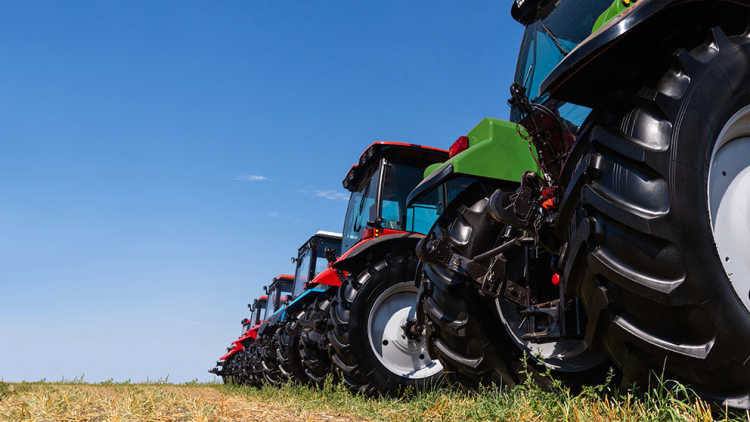How the rise of online auctions is changing used farm equipment sales

The popularity of online equipment auctions has taken off in the last few years but, there’s one item for sale buyers would like to see more of – used equipment.
Sales of used equipment are usually robust when new equipment manufacturers face challenges, such as those with the supply chain.
One way buyers can purchase used equipment is through auctions. While there has been less in-person auctions, online auction numbers have surged, especially timed auctions.
Ritchie Bros. Auctioneers started hosting online auctions in 2002, but most of its business remained in conjunction with live auctions. The popularity of timed auctions took off at the onset of the COVID-19 pandemic in early 2020, says Luke Fritshaw, Ritchie Bros. Auctioneers sales director in Saskatoon.
Timed auctions ins and outs
Bidding no longer opens when an auctioneer gets to a lot, but three to five days before auction. This allows customers to put in their maximum bids early and avoid sitting to watch the auction and wait for their item.
Since timed auctions are held online, bidders can take more time to place their bid from the comfort of their homes. Though that may mean higher prices, since bidders have longer to consider the purchase.
At some auction houses, the time left on the bid is reset if a bid is placed in the last two minutes of the sale. That provides customers with additional time to decide how high they’re willing to go with their bidding.
“It’s just a lot more accessible. More customers can manage their time and business, and still be able to bid on equipment a few days before. Or, they don’t have to sit down until minutes before the actual closing time,” Fritshaw says.
Do your research
Buyers want lots of pictures and information on auction websites.
Buyers need to do their research, and that’s possible even in most consignment sales. The equipment comes from reputable consumers or dealerships who can provide its history. Dealer financing isn’t available at auction sales, but other financing can easily be arranged.
Buyers want lots of pictures and information on auction websites so they can make purchase decisions without ever seeing the equipment in person.
It’s interesting to note that sometimes even local people bid online to save themselves time. And they can also bid anonymously.
Sellers, consult your accountant
One of the first steps for farmers thinking about having a farm sale should be talking to their accountant for financial and tax advice. Farmers will want to minimize tax implications, considering the large cash flow increase that an auction will produce.
An important aspect is choosing a good time for a farm sale. March/April, June/July and October/December are usually considered optimal months for a farm auction. Some auction houses like Ritchie Bros. try to avoid auctions in the busy farming months as farmers are focused on either putting the crop in or taking it off.
Another factor to consider is that most buyers want to talk to the seller about their equipment. Many potential buyers feel they can get a lot of good information from the farmer who has owned, operated and serviced the equipment to be sold. The auction company doesn’t know the history of the equipment like the owner does. In some cases, a potential buyer will request that an independent mechanic examine a piece of equipment in advance of a sale.
If buyers plan to finance any purchases, it should be arranged before the auction. Most farmers factor in after-sale costs such as trucking, but it’s wise to research this beforehand to avoid surprises.
Early bids
Timed auctions won’t completely replace live bidding, but they will remain an option. Buyers still have a desire to get together with others at live auctions, but “buyers and sellers see a benefit in using the timed auction system.”
Article by: Richard Kamchen
